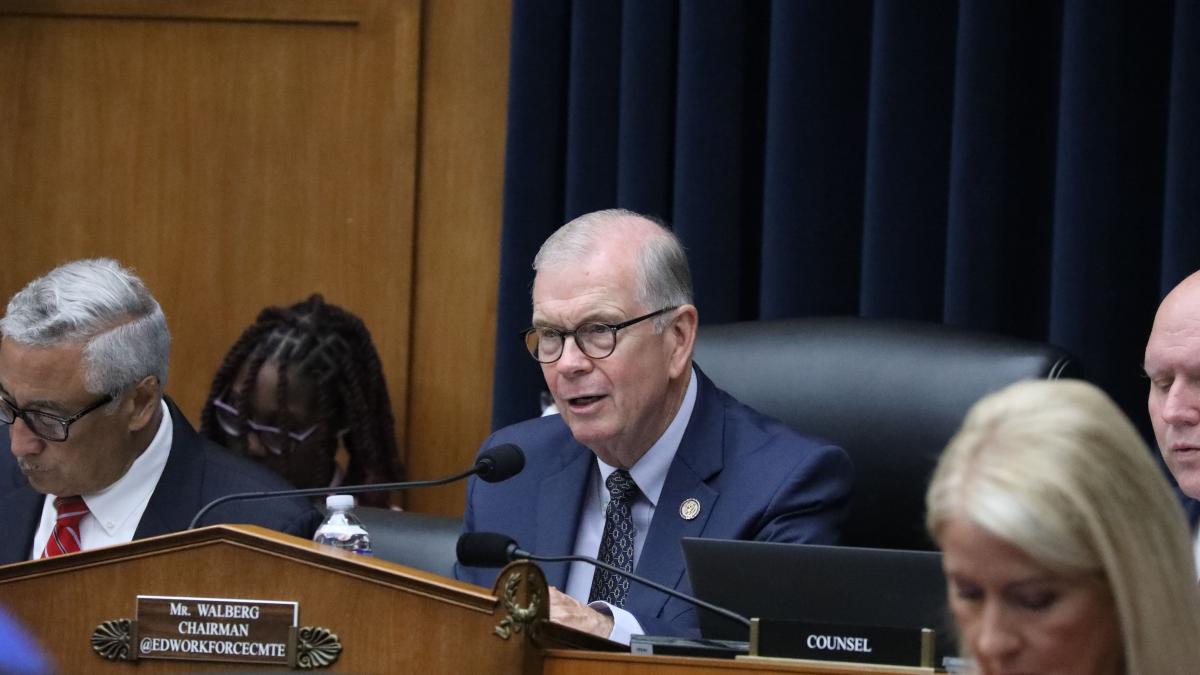Townhall: More Trouble for Harvard? House Committee Members Investigating University for Hiring Practices

Harvard University, as Townhall has been covering, has certainly earned the ire from the Trump administration. With the university failing to crack down on antisemitism, using discriminatory practices, and the influence from the Chinese Communist Party (CCP), the Trump administration has been cracking down by cutting off funding and when it comes to visas for foreign students. On Tuesday, in a letter shared exclusively with Townhall, Education and Workforce Committee Chairman Tim Walberg (R-MI) along with eight other members, wrote a letter to Harvard President Alan M. Garber, demanding answers so as to investigate reports of discrimination in Harvard’s hiring process.
The letter begins in part by mentioning May reports from Christopher F. Rufo and Ryan Thorpe in City Journal about Harvard's discriminatory hiring practices, as well as from The Washington Free Beacon regarding how the Trump administration is looking to crack down on that specific concern, There's also a mention about the 2023 Supreme Court decision against Harvard's discriminatory admission policies.
"Title VII of the Civil Rights Act of 1964 (Title VII) prohibits employment discrimination because of an individual’s race, color, religion, sex, or national origin," the lawmakers remind in their letter. "The Committee is concerned about recent reports that Harvard University (Harvard) may be discriminating in hiring and employment on these bases. These reports are especially concerning following Students for Fair Admissions v. President and Fellows of Harvard College, in which the United States Supreme Court held that Harvard discriminated in student admissions on the basis of race in violation of Title VI of the Civil Rights Act of 1964 and the Equal Protection Clause of the Fourteenth Amendment. While Title VII and employment discrimination were not at issue in Students for Fair Admissions, the principle of equal treatment under the law certainly applies to Title VII as well," their opening continues.
Harvard's own public documents present quite the unflattering look for discriminatory hiring practices as well, as the letter goes on to reveal. "Numerous publicly available documents produced or published by Harvard suggest that Harvard may have been and may still be unlawfully discriminating with respect to its hiring and employment practices," the letter points out, going on to share plenty of examples.
The letter references a 28-page document copyrighted by the President and Fellows of Harvard College in 2023, "Best Practices for Conducting Faculty Searches." Examples in the document include:
- Right from the start, on page 6, under section "1.0 Starting a Productive Search," under subsection "1.1 The Position Description," the document recommends an applicant pool where administrators should "ensure that the early lists include women and minorities."
- Under "2.1 Take Responsibility for Developing a Broad Pool," the document anticipates objections for these placement goals to try to justify them. "A goal is by no means a quota. But in searches with a placement goal for women and minorities, it is that much more important that the committee conduct robust outreach," the document writes.
- The document also later discusses these placement goals when it comes to how, "[p]articularly when there are placement goals, the Chair should consider reading the applications of women and minorities first..."
- Another mention about these placement goals also focuses on women or minority applicants when it comes to a "second look." As the document mentions, the chair should "should bring forward women or minority applicants who might deserve a 'second look,' particularly when there are placement goals" and "should attend to all women and minorities on the long list."
- In the "2.6 Actively Recruit Candidates to Apply" section, the document points out that "Under University guidelines, the committee chair... can see the confidential individual, self-identified demographic data, including gender, race, and ethnicity...." The document also notes that the chair should "use this information to encourage diversity in the applicant pool..."
- The document also dictates monitoring the "long list" of applicants, including for diversity. "As the committee iterates towards the 'long list,' the chair should continually monitor its composition. How diverse is it? Does its representation of women and minorities reflect the applicant pool? The chair and other committee members should periodically ask whether implicit biases may have inadvertently influenced ratings." law certainly applies to Title VII as well," their opening continues.
To read the full article, visit: https://townhall.com/tipsheet/rebeccadowns/2025/06/10/harvard-is-in-more-trouble-this-time-from-the-house-n2658529.